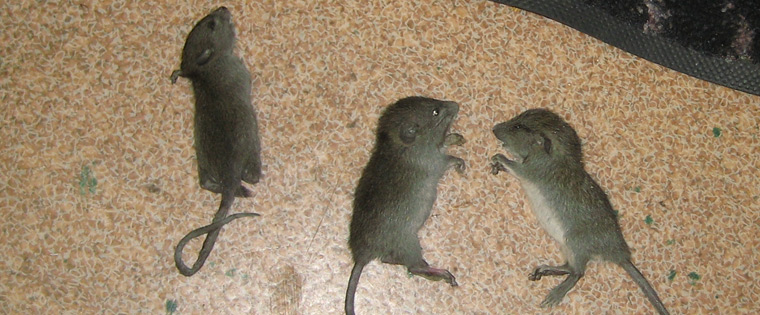-
info@aaanimalcontrol.com
Call us for help in your town
Humane Wildlife Education
How does poison make rats thirsty and die outside?
Need rat removal in your hometown? We service over 500 USA locations! Click here to hire us in your town and check prices - updated for year 2020.
In order to sell more product, rat poison producers have come up with an ingenious method of promoting their products: convincing people that rat poison makes rats thirsty and die outside. This is, simply put, a myth many people still believe to this day, and that in turn leads to more problems for those having to deal with rat infestations. Mainly these problems revolve around the conviction that rats that eat the poison will leave the location and die somewhere else, only to shortly thereafter notice bad smells and eventually find the bodies of dead rats all around your home. It’s obvious that these instances are to be avoided, as dead mice and rats can mean not only unpleasant odors, but also an increased risk of disease being spread, and other wildlife who might ingest the dead rats suffering.

What should you do instead of using poison for rats? Let’s start off with understanding that a pest issue like you’d have with rats requires the help of a professional vermin control service. This is because if you were to take on this task yourself, you might miss a few important aspects of dealing with rats. First off, you need to locate and fix whatever it is that allows rats to come in the first place, or attracts them. Once that has been dealt with, the rats can be then removed through either lethal snap traps or other solutions which will be determined by your wildlife removal professional. And only after that will the affected area need to be properly cleaned in order to get rid of feces and other potentially harmful remains. It’s likely you yourself don’t have the knowledge or equipment to tackle all these issues, and it’s a lot more convenient and effective to hire a professional to take care of the job in the first place.
Another important aspect to keep in mind is that poison is usually in the form of a product you place around your home and wait for rats to consume it. There’s nothing preventing your own pets or wildlife living naturally around your home from ingesting this poison; and if you have small children around, you may also risk their safety with certain types of rat poison. Even if the rats do eat it and die, their corpses can still infest your home and make it considerably harder to get rid of them that way. Necrophages will also likely eat the dead rats and mice, which will lead to them having problems as well – a scenario you should avoid because it can potentially infect an entire ecosystem if you’re not careful.
So, don’t use poisons – just don’t. Let a wildlife control experts do their job in a safe, risk-free and professional manner which will not only get you rid of the rats in a humane way, but will guarantee you won’t be impacting the environment, and won’t find yourself having to deal with other sorts of problems down the road, like unwanted odors from dead rats.
For more information, you may want to click on one of these guides that I wrote:
How much does rat removal cost? - get the lowdown on prices.
How to get rid of rats - my main rat removal info guide.
Example rat trapping photographs - get do-it-yourself ideas.
Rat job blog - learn from great examples of rat jobs I've done.
Do rodents eat insects?


















